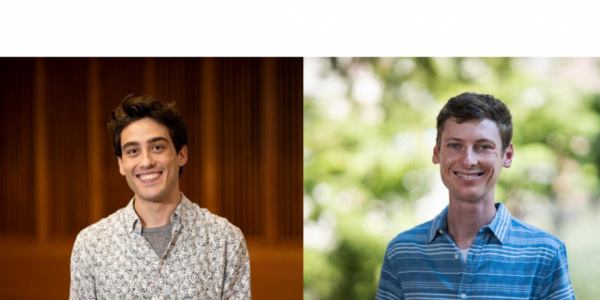Taste of Science with Roger Michaelides and Alex Thompson on Furies of Our Planet and Global Warming
"Imaging Permafrost and Wildfire interactions in the Arctic from Space" (Roger Michaelides, WashU, Department of Earth and Planetary Sciences)
The Arctic is one of the fastest-changing regions on the Earth. Air temperature records have shown a warming trend of nearly 3°C since the 1960s. This warming is responsible for rapid changes across the Arctic, from melting of ice sheets and glaciers, to thawing of permafrost. Rising air temperatures have led to an increase in the severity and frequency of wildfires across the Arctic. Wildfires threaten the stability of permafrost -- ground that is perenially frozen for more than two consecutive years -- which can degrade and release elevated levels of greenhouse gases for years after a fire. In this talk, I will discuss how wildfire-induced changes to Arctic permafrost can be measured from space with satellite-based radar imagers, and what the implications of these findings are for the Arctic.
"Using climate models to investigate extreme precipitation in St. Louis" (Alex Thompson, WashU, Department of Earth and Planetary Sciences)
On July 26, 2022, record-breaking rain fell throughout the metropolitan area of St. Louis, producing catastrophic flooding. Although the intense 24-hour rainfall from this storm was estimated to occur only once in 1,000 years, the accuracy of this assessment is limited by the relatively short data record of fewer than 100 years. Since extreme precipitation in the Midwest is occurring more frequently as the planet warms, it is critically important that we accurately calculate the past and future frequency of these types of extreme events. In this talk, I will share ongoing work where I am combining daily rainfall from rain gauge observations with over 1,000 years of climate model simulations to assess the frequency of the July 2022 storm in St. Louis more accurately than previous methods. With our innovative approach, we have greater confidence in the evaluation of the historical frequency of a storm of this magnitude and quantify the increase in likelihood of this extreme rainfall happening again in the future.
Taste of Science, a US-wide festival, is part of Scientists, Inc. a registered 501(c)(3) non-profit.
"We believe that science should be accessible to everyone so we bring anyone working in the realm of science and science communication together with the community to help them develop an appreciation for science in their favorite hangouts."
Tickets are $5 at the door.
More Info
